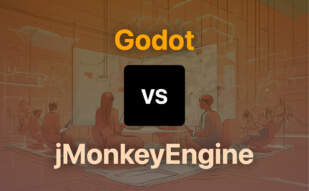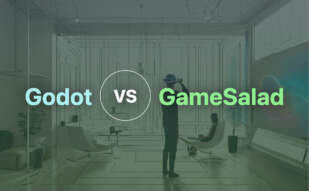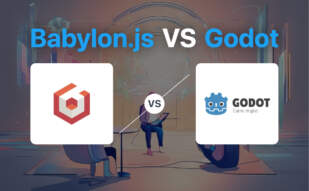For intuitive and scene-oriented development, consider Godot. Its built-in GDScript, alongside C++ and C# support caters to a broad developer demographic. Conversely, LibGDX suffices if you require fine-grained control and an extensive third-party ecosystem.
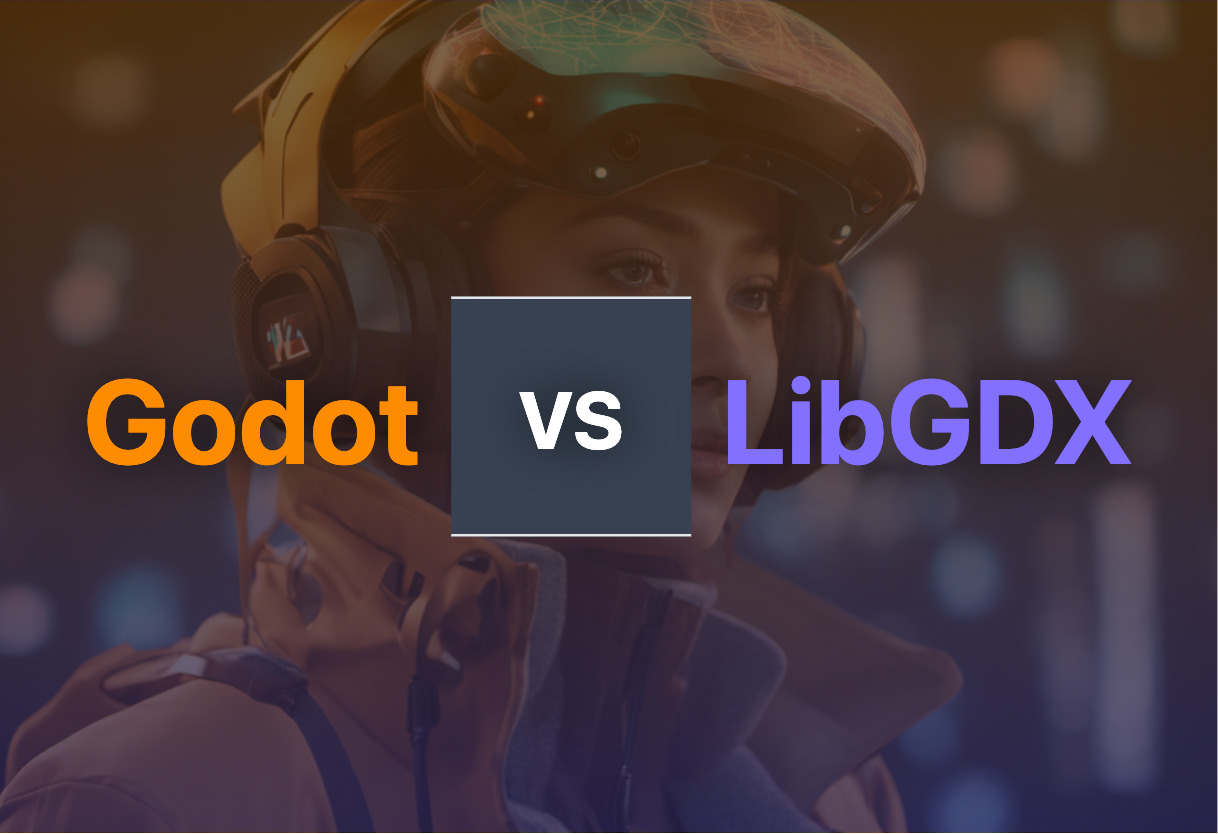
Key Differences Between Godot and LibGDX
- Coding:Godot uses its own language, GDScript, and supports C++ and C#, while LibGDX mainly uses Java.
- Scene Management:Godot is more scene-oriented, with nodes creating complex reusable scenes; LibGDX is more code-centric.
- License:Godot is free under the MIT license, while LibGDX is licensed under Apache 2.0.
- Third-party ecosystem:LibGDX has an extensive, while Godot relies more on community language bindings.
| Comparison | Godot | LibGDX |
|---|---|---|
| License | MIT License | Apache License 2.0 |
| Language Support | GDScript, C++, C#, community support for Rust, Nim, Haskell, Clojure, Swift & D | Java-based with support from the JVM ecosystem |
| Platform Compatibility | Windows, MacOS, Linux, Android (3.5 supports phones & tablets), WebGL | Windows, MacOS, Linux, Android, iOS, WebGL |
| Primary Design Perspective | Scene-driven, utilizing a node system for reusability | Code-centric offering fine-grained control |
| Audio Features | Audio Bus/Layout system with real-time effects | Audio Streaming for WAV, MP3, OGG, Direct PCM playback, and recording |
| Services Integration | Storage solution for team collaboration | Google Play Games, Apple Game Centre, Firebase, Steamworks API, gameanalytics.com, Facebook’s Graph API, AdMob, In-app purchases |
| Tools and Utilities | Built-in code editor, debugging tools, profilers | Code editor, Hiero for bitmap fonts, Particle Editor for particle systems, fbx-conv for importing 3D assets |
| Community | Open-source, dynamic community with regular updates and improvements | Extensive open-source community with forums, active Discord server, and detailed Wiki tutorials |
What Is Godot and Who’s It For?
An open-source game engine, Godot stands at the crossroads of innovation and flexibility, fostering creativity from simple blocks to complex reusable scenes. It’s built for those who seek intuitive design, the liberty of modifiable codebase, and cross-platform operability. Godot caters to developers at all skill levels, from the novice laying their first lines of code to the veteran architecting intricate architectures with multiple language bindings. It thrives within either beginner-friendly or advanced 2D and 3D gaming landscapes, equipping developers with an advanced toolset, all without the shackles of hidden fees or contracts.

Pros of Godot
- Intuitive scene-driven design
- Inclusion of many programming languages
- Direct import of Blender files
- Specialized 2D workflow
- No licensing or hidden fees
- Multi-platform operability
Cons of Godot
- Complex 3D game development might be challenging
- .NET framework only available for desktop platforms
- Some bindings only available through community support
What Is LibGDX and Who’s It For?
LibGDX is a robust Java game development framework providing cross-platform targeting, robust APIs, and extensive third-party support. This decade-old stalwart attracts game developers who value fine-grain control and a rich ecosystem of tools. LibGDX finds its optimal utilization in the hands of developers fluent in Java, who desire a plethora of features from audio streaming to gesture detection, advanced physics engines, and sophisticated graphics rendering. Open-source and equipped with comprehensive documentation, LibGDX fits well in both small indie projects and large commercial productions.

Pros of LibGDX
- Fine-grained control
- Cross-platform compatibility
- Extensive third-party ecosystem
- Advanced audio and graphics features
- Provisions for in-app purchases and ad integrations
Cons of LibGDX
- Knowledge of Java is necessary
- Requires more intensive code-centric control
- Advanced features may have a steep learning curve
Code Examples for Godot & LibGDX
Godot
This code snippet provides an example of sprite animation in Godot by defining a character’s movement. Ensure that there’s a Sprite and a KinematicBody2D named ‘Player’ with required animation frames in your project for this code to run optimally.
extends KinematicBody2D
var speed = 200
var velocity = Vector2()
func _ready():
pass
func _physics_process(delta):
velocity = Vector2()
if Input.is_action_pressed('ui_right'):
velocity.x += 1
if Input.is_action_pressed('ui_left'):
velocity.x -= 1
if Input.is_action_pressed('ui_down'):
velocity.y += 1
if Input.is_action_pressed('ui_up'):
velocity.y -= 1
if velocity.length() > 0:
velocity = velocity.normalized()*speed
$Sprite.play("walk")
else:
$Sprite.play("idle")
velocity = move_and_slide(velocity)LibGDX
This code snippet demonstrates how to handle input in a LibGDX game, by defining the movement of a player object using arrow keys. Make sure LibGDX library is integrated into your project setup, and a ‘player’ object is present in the game.
import com.badlogic.gdx.ApplicationListener;
import com.badlogic.gdx.Gdx;
import com.badlogic.gdx.Input.Keys;
public class MyGdxGame implements ApplicationListener {
private Player player;
@Override
public void create() {
player = new Player();
}
@Override
public void render() {
float delta = Gdx.graphics.getDeltaTime();
if (Gdx.input.isKeyPressed(Keys.RIGHT)) player.moveRight(delta);
if (Gdx.input.isKeyPressed(Keys.LEFT)) player.moveLeft(delta);
if (Gdx.input.isKeyPressed(Keys.UP)) player.moveUp(delta);
if (Gdx.input.isKeyPressed(Keys.DOWN)) player.moveDown(delta);
}
@Override
public void pause() { }
@Override
public void resume() { }
@Override
public void dispose() { }
}The Ultimate Showdown: Godot vs LibGDX
Choosing between Godot and LibGDX is a critical decision that developers, game makers and AR/VR creators have to make. Here’s our take:
Beginners in Game Development
Godot would be our top pick for novices in the game development field, given its intuitive scene-driven design and a visually appealing editor bundled with the engine itself. Not to mention, the abundance of nodes providing reusable blocks makes assembling scenes an effortless task, and the GDScript scripting language proves to be a perfect blend of power and ease-of-use.
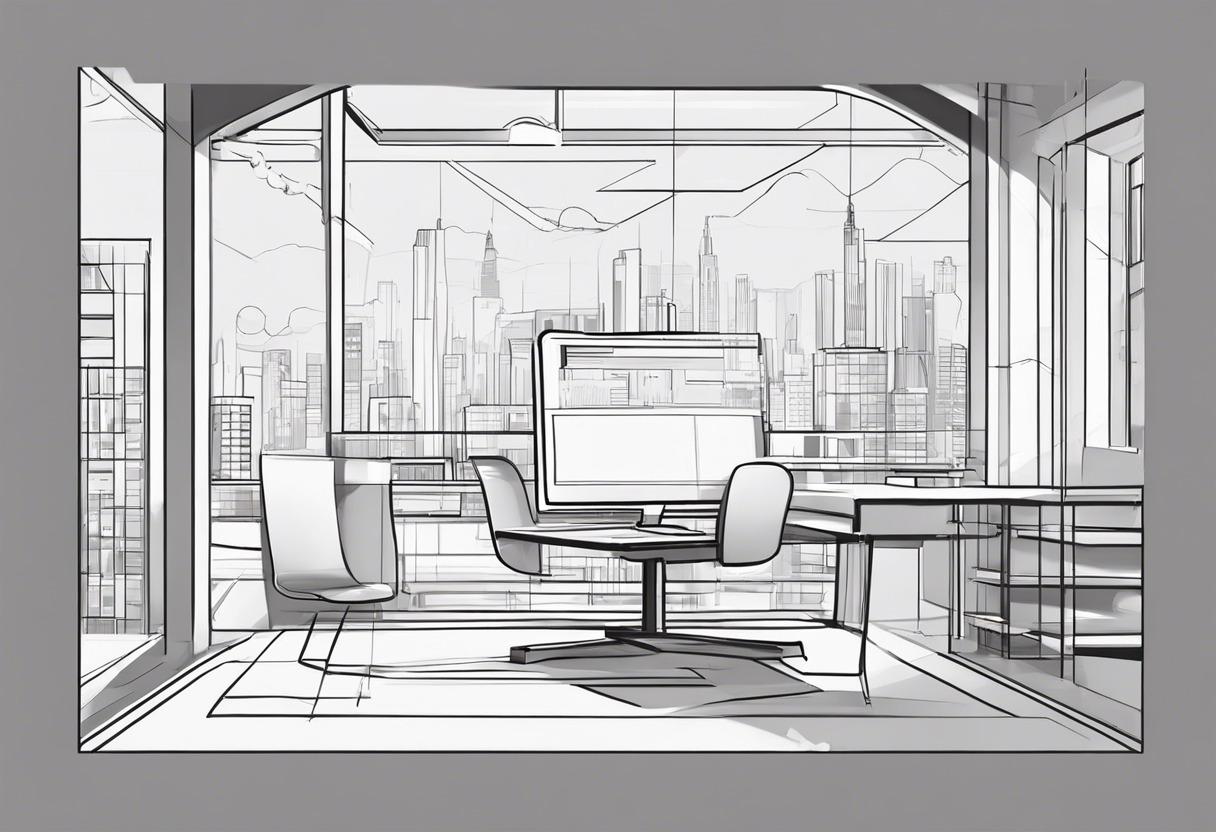
Cross-platform Java developers
On the other hand, if you’re a Java developer seeking a unified API to target multiple platforms, look no further than LibGDX. Its proven reliability, coupled with an extensive third-party ecosystem and OpenGL rendering capabilities, makes it attractive for cross-platform Java gaming projects.
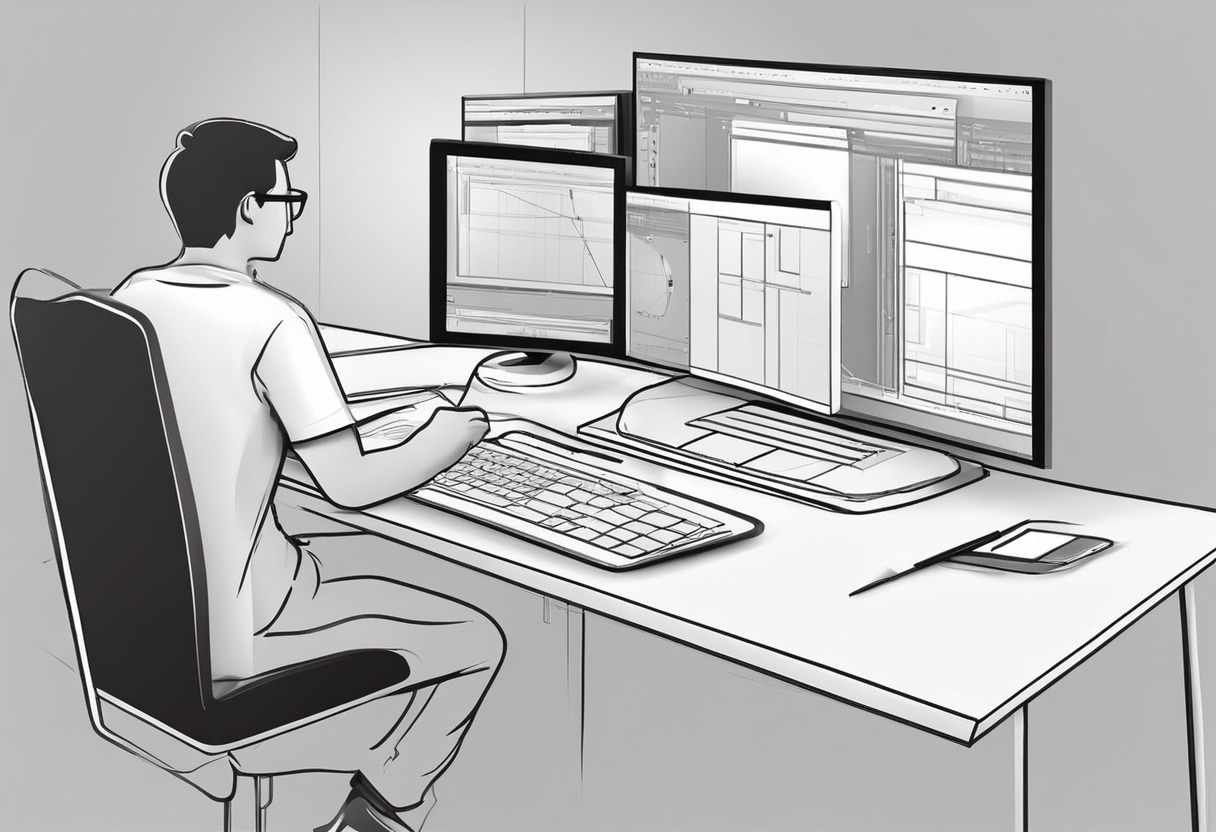
AR/VR Creators
LibGDX might appeal more to AR/VR creators, since it provides support for 3D APIs including lighting systems, GLTF 2.0 and even VR, offering holistic 3D and VR solutions for a completely immersive gaming experience. This isn’t to say Godot falls far behind – it’s just that LibGDX pulls ahead in this specific realm.

In essence, between Godot and LibGDX, it’s the former we recommend for beginners seeking an easy, intuitive start into the world of game development. For veteran Java developers looking to ride the cross-platform wave, LibGDX might be your cup of tea. AR/VR creators would find greater support with LibGDX’s extensive 3D and VR capabilities.
Hannah Stewart
Content writer @ Aircada, tech enthusiast, metaverse explorer, and coffee addict. Weaving stories in digital realms.



